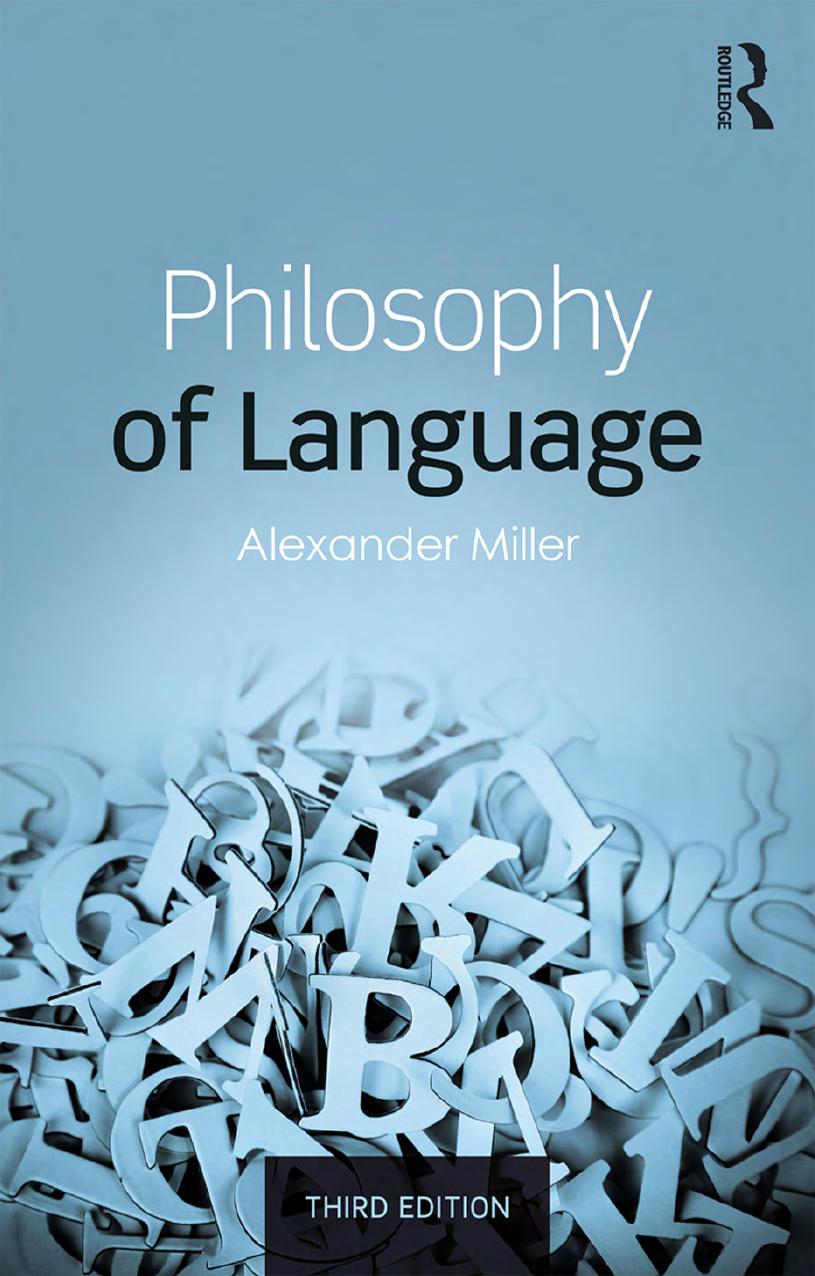Philosophy of Language by Alexander Miller

Author:Alexander Miller
Language: eng
Format: epub, pdf
Publisher: Taylor & Francis (CAM)
Published: 2018-01-04T00:00:00+00:00
In other words, if two ascriptions of meaning do not have truth-conditions, what does it mean to say that one of them is more probably true because it is simpler?
What we shall now suggest is that the sceptical solution offered by KW itself falls prey to a similar misunderstanding to that which apparently vitiates the appeal to simplicity considerations.34 The objection has been made forcibly by Jose Zalabardo (though he fails to notice any similarity between his own objection and the one which KW’s sceptic makes against the simplicity suggestion). Zalabardo too points out that “the result does not concern an indeterminacy as to which rule is being followed, but the notion of rule itself”.35 If the problem were merely one of choosing between alternatives, then facts about agreement of communal responses, in the manner described by KW, might indeed constitute a solution to that problem. But given that this is not the real sceptical problem, the crucial question is whether “Kripke’s description of the assertibility conditions of content could provide the meaning of the ascriptions”.36 And it would appear that the answer to this question has to be negative, for three reasons. Firstly, if ascriptions of meaning amount to no more than claims about agreement of responses within the linguistic community, it would seem to follow that “all judgements would collapse into judgements about the ascribers (or the whole community’s) inclinations to consider certain situations as in some respect similar to each other”.37 In other words, and absurdly, that all our judgements would be about our fellow speakers’ inclinations and the agreement or disagreement among them. Secondly, this would really only be another attempt at a straight solution, an attempt to spell out the truth-conditions of ascriptions of meaning in terms of communal responses, and the distinctive nature of the sceptical solution would be lost. Thirdly, this suggestion would itself be susceptible to KW’s sceptical argument. This point has been well made by Crispin Wright:
Download
This site does not store any files on its server. We only index and link to content provided by other sites. Please contact the content providers to delete copyright contents if any and email us, we'll remove relevant links or contents immediately.
The remains of the day by Kazuo Ishiguro(7550)
Tools of Titans by Timothy Ferriss(6944)
The Black Swan by Nassim Nicholas Taleb(6190)
Inner Engineering: A Yogi's Guide to Joy by Sadhguru(5893)
Giovanni's Room by James Baldwin(5876)
The Way of Zen by Alan W. Watts(5795)
The Six Wives Of Henry VIII (WOMEN IN HISTORY) by Fraser Antonia(4789)
The Power of Now: A Guide to Spiritual Enlightenment by Eckhart Tolle(4751)
Astrophysics for People in a Hurry by Neil DeGrasse Tyson(4617)
Asking the Right Questions: A Guide to Critical Thinking by M. Neil Browne & Stuart M. Keeley(4573)
12 Rules for Life by Jordan B. Peterson(3730)
The Ethical Slut by Janet W. Hardy(3500)
Skin in the Game by Nassim Nicholas Taleb(3459)
Housekeeping by Marilynne Robinson(3401)
The Art of Happiness by The Dalai Lama(3382)
Double Down (Diary of a Wimpy Kid Book 11) by Jeff Kinney(3272)
Skin in the Game: Hidden Asymmetries in Daily Life by Nassim Nicholas Taleb(3263)
Walking by Henry David Thoreau(3233)
12 Rules for Life: An Antidote to Chaos by Jordan B. Peterson(3199)
